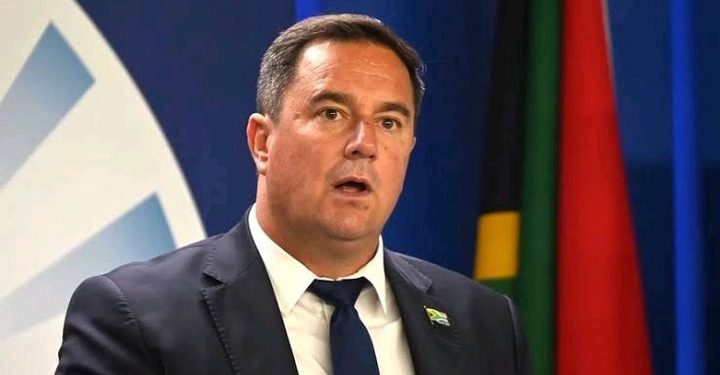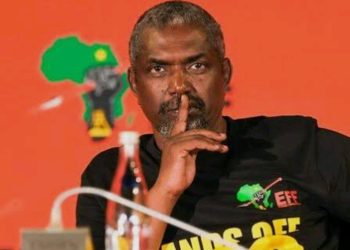Democratic Alliance (DA) leader and Agriculture Minister John Steenhuisen has sparked fierce criticism after posting photos of his White House meeting with former U.S. President Donald Trump, with many South Africans accusing him of failing to stand up for national interests during the controversial engagement.
The May 21 meeting, which included President Cyril Ramaphosa, business magnate Johann Rupert, and golf legends Ernie Els and Retief Goosen, was framed by Steenhuisen as strengthening U.S.-South Africa relations. “Productive discussions advancing South Africa’s interests,” he tweeted alongside images of the Oval Office visit.
But the online response was scathing. Farmers’ rights activist Delia Byliefeldt challenged: “Whose interests? My macadamia farm was attacked in 2021. Your silence on farmer safety speaks volumes.” This referenced Trump’s repeated but disputed claims about white farmer persecution in South Africa.
Critics blasted Steenhuisen for not forcefully countering Trump’s inflammatory rhetoric, including when the former U.S. president showed videos of EFF leader Julius Malema singing “Kill the Boer.” While Steenhuisen later stated crime affects all South Africans and emphasized his party’s role in blocking radical elements like Malema from power, many felt this response was inadequate.
It was good to be at the White House today with the South African delegation. Thank you to President Trump for his welcome and a great lunch and a good constructive discussion. We will always advance South Africa’s interests. 🇿🇦 pic.twitter.com/MoqsbuwadV
— John Steenhuisen MP (@jsteenhuisen) May 21, 2025
“Missed opportunity to be a national hero,” lamented commentator Justin Marsberg, echoing widespread disappointment that Steenhuisen didn’t directly address land reform or correct misinformation about farm attacks. Marxist-Leninist groups mocked the visit as “lapdog diplomacy,” while others like Zenzo Mbele demanded: “Tell Trump there’s no white genocide! Damn racist!”
The backlash highlights South Africa’s delicate position in global diplomacy, where maintaining international relationships often clashes with defending national sovereignty against foreign mischaracterizations. Political analyst Thando Nkosi notes: “This incident reveals the impossible tightrope opposition figures walk – too close to Western powers and you’re accused of betrayal; too critical and you risk international isolation.”
As the DA faces internal pressure over its foreign engagements, the controversy raises deeper questions about how South African leaders should navigate the country’s complex legacy while pursuing economic partnerships. With general elections approaching, the incident may have lasting consequences for Steenhuisen’s political trajectory and the DA’s positioning as both a government participant and critical opposition voice.






















